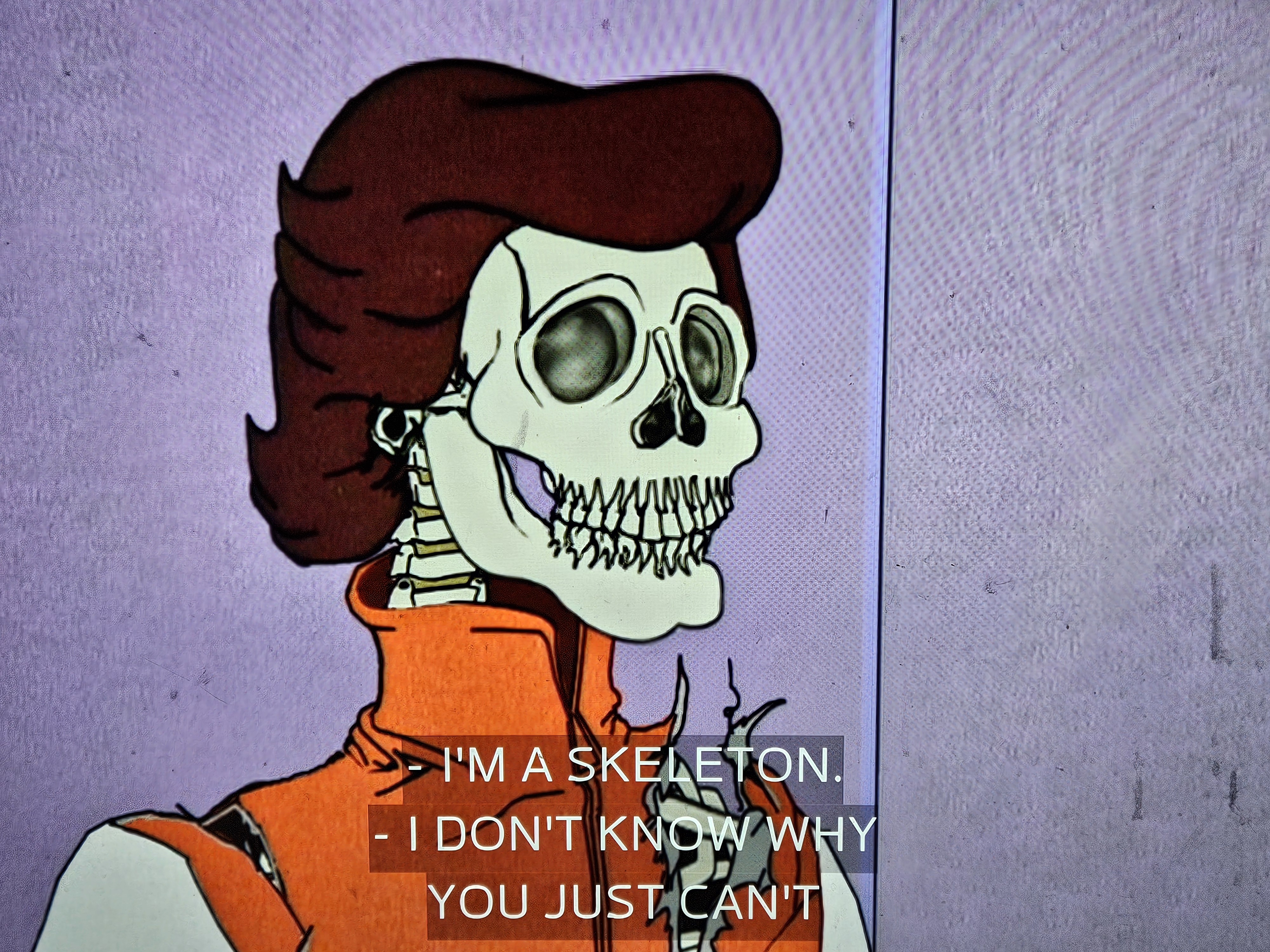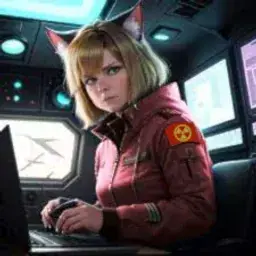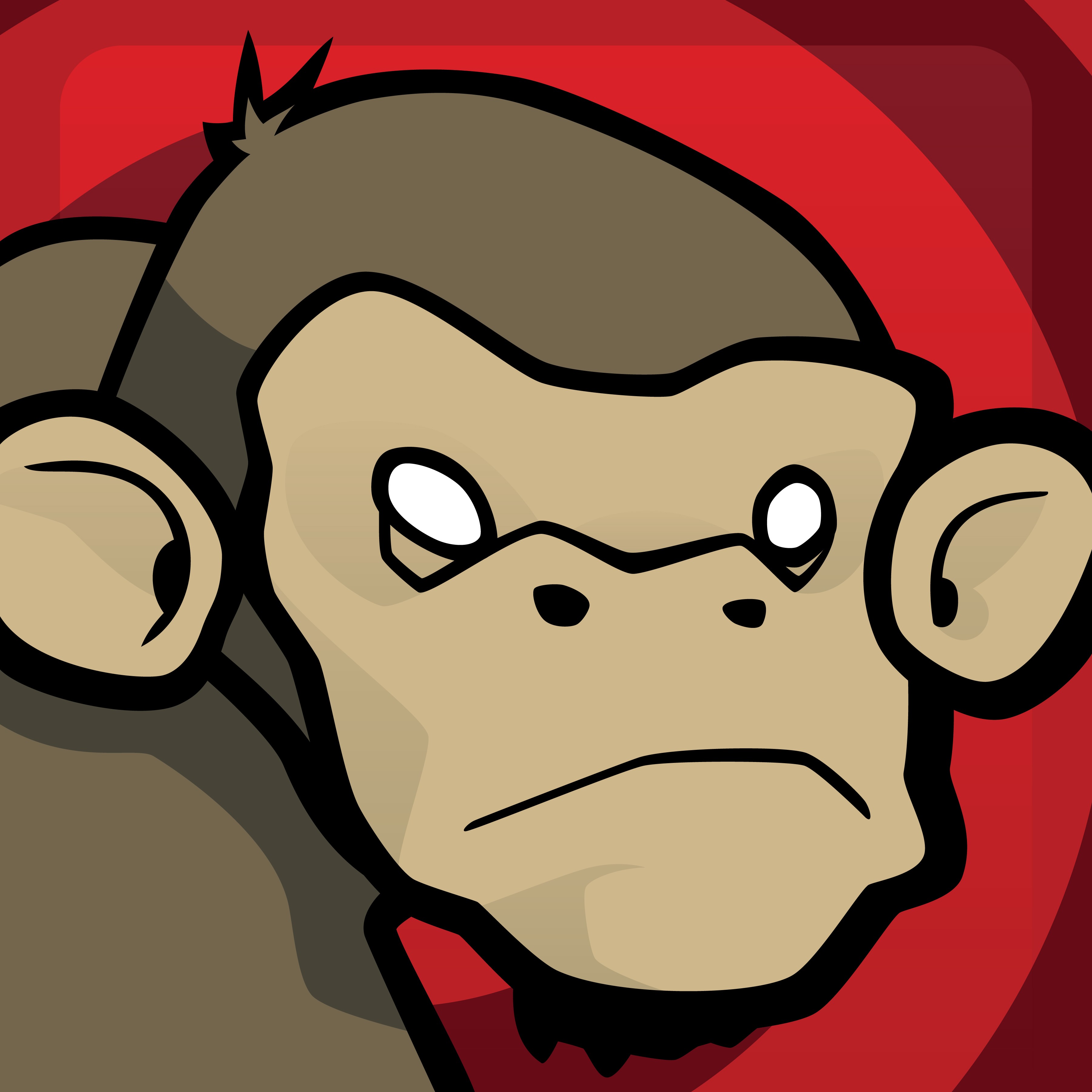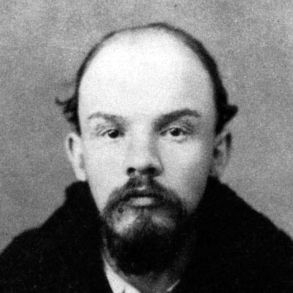Lately, we've seen DnD and Pathfinder move away from some of the more blatant signifiers, like renaming "race" into "species" and "ancestry," and in the case of Pathfinder, having systems in place to mix ancestries in a character build. DnD has decoupled good and evil from species, and pathfinder has done away with good and evil entirely ( keeping a vestige of it present for things like demons and angels).
Race is almost alwys tied to a language and a culture, with, say, kobolds having the same certain cultural signifiers all over the world. To an extent, this makes semse because different peoples in these games can have different physical abilities, or have different origins entirely, which would naturally lead to them developing along different lines -- If one people can breathe underwater and another was born from a volcano by a specific god's decree, that would inform how these cultures behave.
Is it possible to have a fantasy along these lines with a materialist underpinning, or is this very idea of inborn powers anathema to that sort of approach?
I am once again asking people to read the Commonweal for a materialist depiction of what this sort of fantasy world would actually be like. (most sub-species designed by mages of varying degrees of insanity, many for battle or servitude, the entire biome permanently hostile from weaponised species unless a god-king is physically suppressing it, history so fucked from time travel that if you dig too far into time you get a sea of pure evil where humanity was probably wiped out) and how to solve it (Revolutionary Socialist Republic with a commitment to agency that readers will find unsettling (they're prison abolitionists, if someone can't live in their society they just kill them straight up)
(they're prison abolitionists, if someone can't live in their society they just kill them straight up)
 Look, I’ve got some opinions about the death penalty…. But if you are involved in some libertarian shit that results in the deaths of 6 children, we’re gonna have to take you out.
Look, I’ve got some opinions about the death penalty…. But if you are involved in some libertarian shit that results in the deaths of 6 children, we’re gonna have to take you out. 
scraps years of fantasy worldbuilding and attempts at short stories because somebody already did it better
i guess i better check this series out, cry a bit, then maybe do a full reboot
I mean, do it anyway
If my book about deconstructing superhero stuff by turning the empowered into unknowable cosmic horrors turned out to be following a similar route to something else, I'd still write it
After all, what makes a story good isn't just the premise, it's the talent and drive of the author
And I'm sure you have both in spades
thank you for saying this but my creative writing skills are super rusty. partly because i don't read enough.
i have a habit of absorbing the writing style of the last author i read, so i started using that as an excuse not to dive into new fiction. that and ADHD
i have a few genre "worlds" i keep adapting and updating over time.
but who knows maybe there can be an entire genre of "proletarian based materialist epic fantasy" and Grayson Saunders will be cited as the origin author
partly because i don't read enough.
Well, I haven't read a work of fiction that wasn't a comic book in... counts on fingers about a year-ish?
It's more about writing something I want to see in the world than anything else
And Prole fantasy sounds awesome, maybe I'll get to something along those lines in the future
You are in absolutely no danger of writing like Saunders. His prose has been described as "making a heroic attempt to seem like English" and he likes it that way.
i did some research and someone said he writes like an attempt at translating the language of his fantasy world. yeah might be tough
still i was working on something for years that is similiar enough to his basic premise that i might try to check out how he went about it. right down to the "military fantasy" because there's tons of focus in my works on revolutionary small unit tactics and adapting what are essentially arcane "waste products" into useful materials, technologies, and weapons by the mostly mundane radical human faction
He's more about large unit operations, logistics, and large scale civil engineering.
aww man i love those things. mostly the civil engineering part.
I may have to check this out. Is commonweal a series name or a book name
Series name by Graydon Saunders. The first book is a deconstruction of military fantasy. The second and third a deconstruction of Magic School. After that it sort of merges as the Big(er) Bad becomes less of a threat on the horizon.
Be warned in that the writing is deliberately opaque and obtuse, as if it was a direct translation from the Commonweal language (for example, there is gender in the language/society (broadly matriarchal in the local area), but it very, very rarely comes up, to the point that we still don't know the gender of some main characters, if they have a gender.) There are almost no info dumps unless a local citizen needs to be infodumped.
Graydon Saunders
Real mirror universe Brandon Sanderson type shit, here, lol.
Hopefully that means the books are good instead of slop as well
People created by mages for battle fucking off to form their own little villages and stuff is one of my favorite tropes.
Star Wars dipped into this with a clone that went AWOL and started a family. Later on, a group set up their own littlw found family on what amounted to a war machine turned into a walking house that they walked around to different fishin' holes
Clones in Star Wars is absolutely random and incoherent from top to bottom. Every way you can look at it, it's trying to retrofit new stories around a really poorly chosen set of throwaway lines with a very poorly chosen scifi technobabble from the original trilogy.
"You fought in the Clone Wars?" / "General Kenobi, years ago you served my father in the Clone Wars."
It would have been so much better if they retconned those lines or found a different interpretation of "clone" to backfill content for a recent war.
The number of ways new star wars continues to eternally double down on clones is just embarrassing.
Star wars is so expansive that some incoherency is just bound to be there. That said I think there is underexplored potential in storytelling around clones and how fucked up it would be to make a race of genetic supersoldiers bred specifically to kill. How can you call Jedi the good guys when they're so ready to exploit them?
Droids occupy a similar space, IMO
(Revolutionary Socialist Republic with a commitment to agency that readers will find unsettling (they're prison abolitionists, if someone can't live in their society they just kill them straight up)
Wut
This sounds very libertarian but isn't.
They live in a world where a sufficiently powerful mage can mind control an entire continent without actually being conscious of the fact they're doing it. Or if they are being able to stop.
When they finally got free, the former slaves vowed they'd never compel anyone ever again. In practice they still have a state and judges and punishments, but most punishments are fines.
Additionally, none of the mage autocracies around them know how their secret socialist cumbstomp magic works so once you join, you can't leave, ever.
Their whole civilisation is held together by a massive social hive mind geas that requires voluntary committment to it's rules (which is both a good countermeasure against subversion by outside mages and also prevents them going all War of the First Coalition.)
If you're a sufficiently powerful mage, you need to bind your soul to it and physically show the geas that you can live in society all the time, or it will delete you (or at least part of you). A main character sacrifices themself to defend the republic at one point because of this.
They do keep one person in prison. A mad mage they can't kill. This is considered to be a massive civilisational failure.
I don't think it's possible to fully remove racism from "elves n orcs" fantasy but I think you can leave it a lot better than you left it.
I think framing it as species rather than ethnicity is preferable. There really are major biological differences between humans and dwarves, in a way there aren't between races. Lean into it and make sure everyone knows these are different things, by also having all the species have multiple ethnicities of their own, and having multiple cultures distinct from both. Make dark-skinned elves be annoyed when people call them Drow, because that's a specific culture of spider-obsessed imperialists, and that specific elf you just insulted was from a tribe of nomadic cave fishers. Do the usual tension between agrarian humans and nomadic orcs on one side of the continent, and then do it the other way around on the other, because these are properties of the way different subsistence systems clash with each other, which is cultural. Have a multi-ethnic multi-species culture that aims all its prejudices at people who dress differently and don't speak their language rather than along ethnic lines, because that's how the Romans did it and people need to be reminded that prejudice has always existed but racism hasn't.
And then once you do the lore work of making sure everyone knows that species, ethnicity, and culture are all different things, don't fuck up and give stat modifiers to ethnicities and cultures.
Right before I decided to post this, I realized that the Pathfinder concept of Halflings as thieving, originless wanderers who have often been enslaved by others was basically a recast of Romani tropes
Last time I looked at the halfling lore I got much more of an impression they were analogous to Jews - often travellers and merchants, but mostly dispersed across communities with very few towns or villages of their own. Varisians are much more Romani coded, being pretty much just Romani people in a magical world - travellers who are often mistrusted and find themselves on the edges of society as a result.
I admit I haven't done a deep dive. I'll take your word for it. There is a LOT of Golarion lore
Might be worth doing now with PF2e. One of Paizo's stated goals with PF2e was to unfuck the bits of lore that came from middle age white men trying to represent other people's cultures, leading to massive expansions on the Mwangi and Tian Xia (fantasy africa and far east, respectively) and changes to the European based lore.
It's not perfect, and definitely still has problematic elements (looking at you Extinction Curse), but I think the world does do a lot to show that you can have that orcs n elves, kitchen sink fantasy with material bases to the lore, it just requires a lot more context and work to avoid common tropes and cliches than is generally bothered with for a single story, which is what classic fantasy generally deals in, and D&D is almost exclusively built for. Because Pathfinder is designed to sell the world as much as the mechanics, they have a vested interest in making a more consistent and materially grounded world than most fantasy does - there are recognisable lines of materialist analysis in the rises and falls of the azlanti, taldor, and chelaxian empires, and it does a lot to emphasise local cultures with ancestral twists rather than ancestral cultures. It isn't entirely an example of non colonially influenced fantasy, but I think it does a lot to demonstrate the possibility of making it.
i've been thinking about this lately, as well. it's very difficult. elves n orcs may have deeper origins in northern european folk mythology, but the modern version clearly comes to us filtered through tolkein, and let's face it the guy was steeped in british imperialism and white supremacy. much easier to lampshade it and subvert it, perhaps.
a big part of the problem, i think, is that the characters and their stories are often far removed from the means of production within the game world. it's hard to craft a world in which people are motivated by materialist interests when those interests don't really exist. the economy, such as it even exists, is based on capitalist realist ideas about money and pricing. nobody really worries about who's doing the mining, farming, and so forth that keeps these societies functioning, so the economy is always at a remove or two from the in-game action. monster lairs are filled with treasure for the taking, but that devolves into an accounting problem on character sheets.
and that's before considering how real magic would affect all of that.
so i think you need to start with the worldbuilding and try to imagine a materialist history. how do societies in this world train new characters? will a class-based system inevitably result in class warfare, with one or more of the classes coming to dominate a society and using their institutional power to oppress other classes? how do these societies create and distribute the powerful magic items that everyone wants? like, of course the paladins and witch hunters say that theirs is a battle against evil, but it's really about controlling magic items. the paladin's "detect evil" ability is a projection, an active ability the necessarily reflects the paladin's ideology back, and this ideology forms the superstructure of a settler-colonialist empire, perhaps. the real world paladins worked for charlemagne, after all.
after all, it's much easier to justify killing "monsters" and taking their stuff when you've convinced yourself that they're all ontologically evil.
and it's a role-playing game, so how to the players react to that situation? maybe the paladins of the empire of good are telling them to go kill the evil kobolds that happen to be living in the mountains of shiny magic rocks, and after a few generations of this the kobolds are ruthless in their confrontations with outsiders, relying on traps and their tunnel networks to maintain their resistance against an ever increasing number of "adventurers" who seek the sweet lucre hidden away in their homes.
tbf to tolkien, his orcs are very blatantly EuropeanEmpire-coded, sam and tom bombadil are brown skinned, rangers other than aragorn are dark skinned, every evil group other than Sauron/Saruman & loyal minions is said and/or implied to be tricked or forced into the service of sauron with promises that sauron won't keep--they aren't portrayed as evil for this, imperialism is explicitly and literally condemned even if for technological advancement / profit ("were you ten times as wise you would have no right to rule me and mine for your own profit as you desired"), there's (problematic, but super-progressive for the 50s where even many socialists were telling indigenous peoples they should just assimilate into Canada) ideas of landback for groups dispossessed by the "heroic" nations like Rohan and from very early on we have e.g. Gandalf saying we should feel bad for even his slave-soldiers (still have to fight them tho; can't kill imperialism with love sadly)
Orcs and Urukhai are the soldiers of the industrial-evil (Sauron) and industrial-market (Saruman) Empires and are portrayed as ontologically evil because they are loyal and relatively willing soldiers of an empire bent on slavery and/or extermination and gleefully carry out this extermination. Their mannerisms in this ("just following orders" "give me your number and i'll report this") and mode of laying out their camps (grid based, square buildings) also accord more with a modern euro style military than the "ontologically evil savages" most other fantasy portrays them as.
Orcs and Urukhai are not the conscripts such as e.g. goblins who are explicitly described as wanting to desert and flee back to their holes following the breaking of sauron's empire. A lot of text implies that the ontologically evil "races" in lotr are the result of the evil empires corrupting regular peoples who may be good or bad (e.g. Treebeard muses that Saruman might have combined Orc and Men somehow--the chapter before Ugluk says Saruman feeds them human flesh so this seems likely, ents are noted to look similar to trolls, and when trees wake up they can explicitly turn out bad rather than good). So rly imo we should look at Orcs/Urukhai in lotr less as "an independent society" and more as "commissioned officers of the british army", and goblins/trolls more as "conscripted troops in the british army who want to go home but will nonetheless commit attrocities bc of the racist society they've been brought up in"
fair enough. i should admit i'm not really a fan of his work to begin with so i haven't spent a lot of time with it and i'm probably biased towards an uncharitable read.
Copied from The Utopia of Rules by David Graeber - Heavily edited down to summarize.
These books are not just appealing because they create endless daydream material for the inhabitants of bureaucratic societies. Above all, they appeal because they continue to provide a systematic negation of everything bureaucracy stands for. Just as Medieval clerics and magicians liked to fantasize about a radiant celestial administrative system, so do we, now, fantasize about the adventures of Medieval clerics and mages, existing in a world in which every aspect of bureaucratic existence has been carefully stripped away.
- Fantasy worlds tend to be marked by an absolute division of good and evil - this negates the bureaucratic principal of neutrality
- The existence in fantasy universes of demi-human species—gnomes, drow, trolls, and so on—which are fundamentally human, but absolutely impossible to integrate under the same larger social, legal, or political order, creates a world where racism is actually true. - this negates the bureaucratic principal of indifference
- Legitimate power in fantasy worlds tends to be based on pure charisma, only the villians will use systems of administration - this negates the bureaucratic principals of regularity and predictability
- In fantasy, political life centers around the creation of stories - this negates the mechanical nature of bureaucratic operations
- Protagonists are endlessly engaging with riddles in ancient languages, obscure myths and prophecies, maps with runic puzzles and the like. - Bureaucratic procedures in contrast are based on a principle of transparency.
However, in another sense, D&D represents the ultimate bureaucratization of antibureaucratic fantasy. There are catalogs for everything: types of monsters (stone giants, ice giants, fire giants …), each with carefully tabulated powers and average number of hit points (how hard it is to kill them); human abilities (strength, intelligence, wisdom, dexterity, constitution …); lists of spells available at different levels of capacity (magic missile, fireball, passwall …); types of gods or demons; effectiveness of different sorts of armor and weapons; even moral character (one can be lawful, neutral, or chaotic; good, neutral, or evil; combining these produces nine possible basic moral types …). The books are distantly evocative of Medieval bestiaries and grimoires. But they are largely composed of statistics. All important qualities can be reduced to number. It’s also true that in actual play, there are no rules; the books are just guidelines; the Dungeon Master can (indeed really ought to) play around with them, inventing new spells, monsters, and a thousand variations on existing ones.
Sometimes I think Graeber is overrated but this is brilliant.
important to remember that gary gygax was an insurance adjuster before getting into publishing games
Not sure I have all the cultural context to understand your post but I will say this:
There were dwarf and elf stories way before the 15th century when Europe started colonising the rest of us.
I think the more useful thing to do is not to hide these stereotypes, but to state and then question them. There's this passage from Lords and Ladies -
Elves are wonderful. They provoke wonder.
Elves are marvellous. They cause marvels.
Elves are fantastic. They create fantasies.
Elves are glamorous. They project glamour.
Elves are enchanting. They weave enchantment.
Elves are terrific. They beget terror.
The thing about words is that meanings can twist just like a snake, and if you want to find snakes look for them behind words that have changed their meaning.
Elves can then be used as an allegory of how the aristocracy does the most horrible things one can imagine, but then surround themselves with an air of refinement.
You may be interested in some of the lore and mechanics around Sigil. It doesn't exactly escape the D&D tropes (in some sense it's at the center of the universe, in a universe where good and evil are physical places you can go), but it does present a framework for an actually politically and culturally diverse metropolis. It's also a city of infinite portals, so you can kind of make things intersect with whatever story you're trying to tell. The Bleak Cabal are kind of vulgar materialists, the Athar are anti-theists (or anti-divinists, or whatever), there are multiple flavors of anarchists, labor unions, and there's all the extraplanar politicking and backstabbing you might need to keep things spicy. I think the authors of the Planescape setting managed to avoid some of the worst real-world tropes of your average D&D setting, and the spiritual successor Numenera may be more actively positive in this direction.
Idk how much it advances this discourse but I really liked the Son Of The Black-Eye campaign/story.
The eu4 anbennar thing tries to address this by leaning in and exploring liberation of "monstrous" species as well as having a vast enough world where elves can be depicted as both primitive in some parts and classic eligheted trope elsewhere. There was also a crpg called arcanum that also had things like an underclass of orcs forming militant unions in a dnd but industrial revolution world. I remember this retrospective on it https://youtu.be/HMUugZ3DxH8?si=HeNGkI9Pi5vWVajg
I think it's certainly possible, it's Sci Fi but Star Trek has a bunch of different species of humanoid who interact and exchange cultures and coexist and there's less of the biological determinism we see in traditional fantasy. It does lend itself to a more materialist view because of the science part of science fiction but I think it could be done with fantasy.
I struggled with this as a writer because I had, for decades, wanted to write a fantasy epic, yet after becoming a communist it became extremely obvious to me that nearly all, if not all fantasy and science fiction is reactionary. The genre itself is the problem, because it basically functions as a way for white guys to escape from real world problems (i.e., the world's teeming masses are getting stronger and cannot be stopped).
Even relatively leftwing SFF (Star Trek, Star Wars) is so often unclear about where it stands, politically, that it appeals to reactionaries. One has to dig to realize that Luke is supposed to be with the Viet Cong; Star Trek is basically Horatio Hornblower in space, and spends maybe a total of five minutes (across hundreds of hours of TV and cinema) talking about about socialism (except for DS9). Just a few days ago I told a coworker who liked Episode One that it might be the most racist movie ever made; he had no idea about the Gungans being caricatures of Jamaicans, the Neimoidians being Japanese caricatures, and Watto being a caricature of basically every different race that lives around the Mediterranean, although to my coworker's credit he didn't argue with me when I told him. A small amount of less-famous SFF is a little clearer about where it stands; liberals like Octavia Butler and Ursula K. Le Guin, but fascists don't (as far as I know).
I needed to figure out if there would be fantasy races in my trilogy, and I decided pretty quickly that there wouldn't be. I would throw in some interesting monsters, but that would be it. As for fantasy powers, they would be like Crouching Tiger, but democratized. Anyone who wanted to could learn them, and to avoid the liberal obsession with individualism, they would be based largely on solidarity (with the bad guys using magic like vampires—in order to prey on people).
Fantasy races basically function (as the amazing Graeber quote ITT shows) as an excuse for people to be racist. Tolkien's orcs are basically the Nazi vision of African oriental working class Judeo-Bolsheviks. The Eye of Sauron is Big Brother / the Panopticon / the superego. Rather than in a caricatured form of Europe, my fantasy trilogy would take place in a real historical place (11th century Byzantium) with real historical groups of people (Greeks, Armenians, Turks, Jews, Persians, Assyrians, Arabs, Laz, Georgians, Varangians, Normans, Venetians, and more!) fighting over land many of them have inhabited for centuries if not millennia. This would get sticky and complicated, but I would do my best to do justice to these different groups and keep them human (not idealized) but also entertaining. I wouldn't clothe them in head crests like Star Trek does (much as I love Star Trek) so that I could turn them into easy caricatures and then make fun of them.
That project is finished, and I'm currently posting it chapter-by-chapter here. Eventually it'll be released in paper / ebook form. I've been thinking a lot about releasing it on hexbear to see if anyone likes it (there is a chapter midway through the first book that involves throwing landlords out of their mansions, and two main characters are trans, so there's a lot of hexbear bait, basically).
I'm currently writing a StarCraft fan-fiction, but with all the names and a number of concepts changed, and the racism that is inherent to SFF has come up once again, because StarCraft is fundamentally about three races with inherent strengths and weaknesses battling each other in the Korprulu Sector (the word means something like "bridge" in Turkish). If you look carefully at the OG StarCraft storyline, there is so much weird liberal fascist shit it is fucking unreal (the trope about the revolutionary leader betraying his own followers, the communist-like Zerg only being interested in slavery, genocide, and eugenics (the infested marine is literally a brainwashed suicide bomber), the Protoss basically fighting for landback on Aiur but never really having the strength to pull it off even though they're supposed to be super advanced and powerful, every cinematic involving Terrans basically being about white dudes with southern accents getting brutally killed, and on and on and on...).
All of this ultimately comes down to a dialectical contradiction: everything is similar yet different at the same time.
he had no idea about the Gungans being caricatures of Jamaicans
Including the alien who:
Is introduced in the movie and, when asked if he is intelligent and he replies with "I can talk", the white saviours respond saying that just because you can talk doesn't mean that you are intelligent.
Whose life is saved and who then swears to become the white saviours' slave.
Whose language is only missing the word "Massa", because that would be a little too on the nose although it wouldn't be out of place whatsoever.
and Watto being a caricature of basically every different race that lives around the Mediterranean
I'd argue that he's a caticaturised European Jew:
Big, hooked nose ✅
Scruffy facial hair ✅
Happy merchant grasping hands ✅
Slimy businessman ✅
No scruples ✅
Always trying to profiteer from other people's needs ✅
Wears a small hat on his head ✅
Covetous ✅
Responsible for slavery and debt-bondage of people ✅
why remove it when you can make the elves the evil ones and do a whole take on the orcs being revolutionaries fighting a peoples war
















